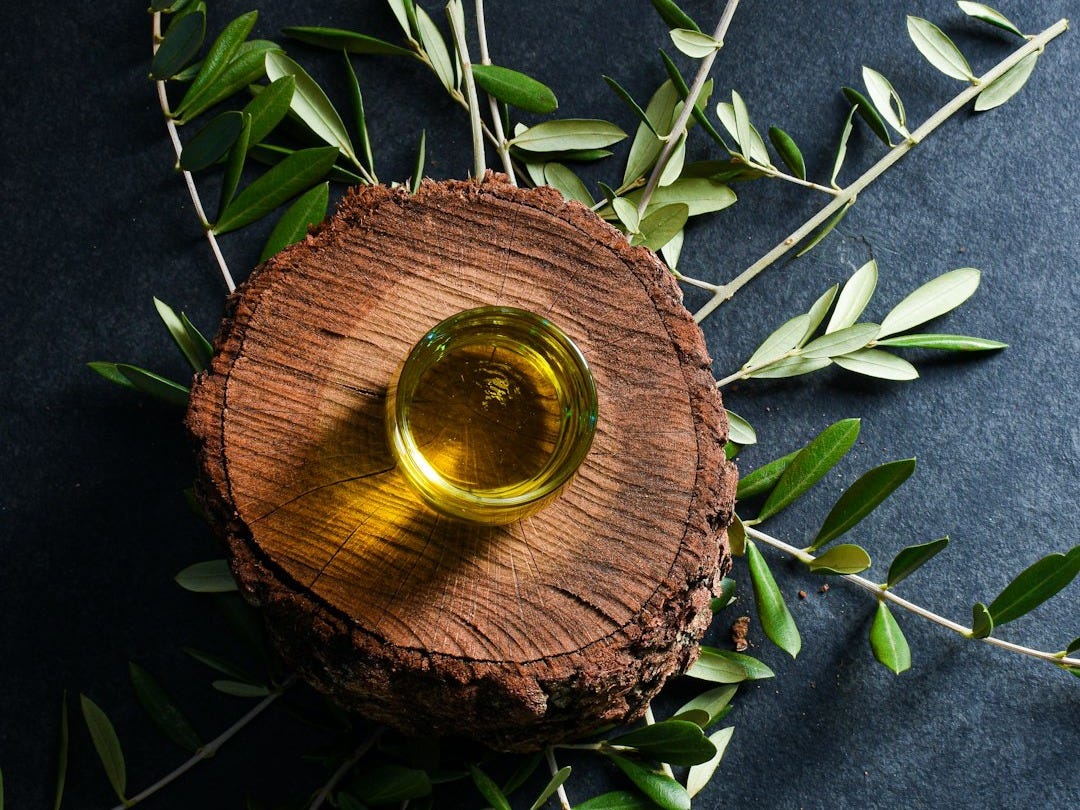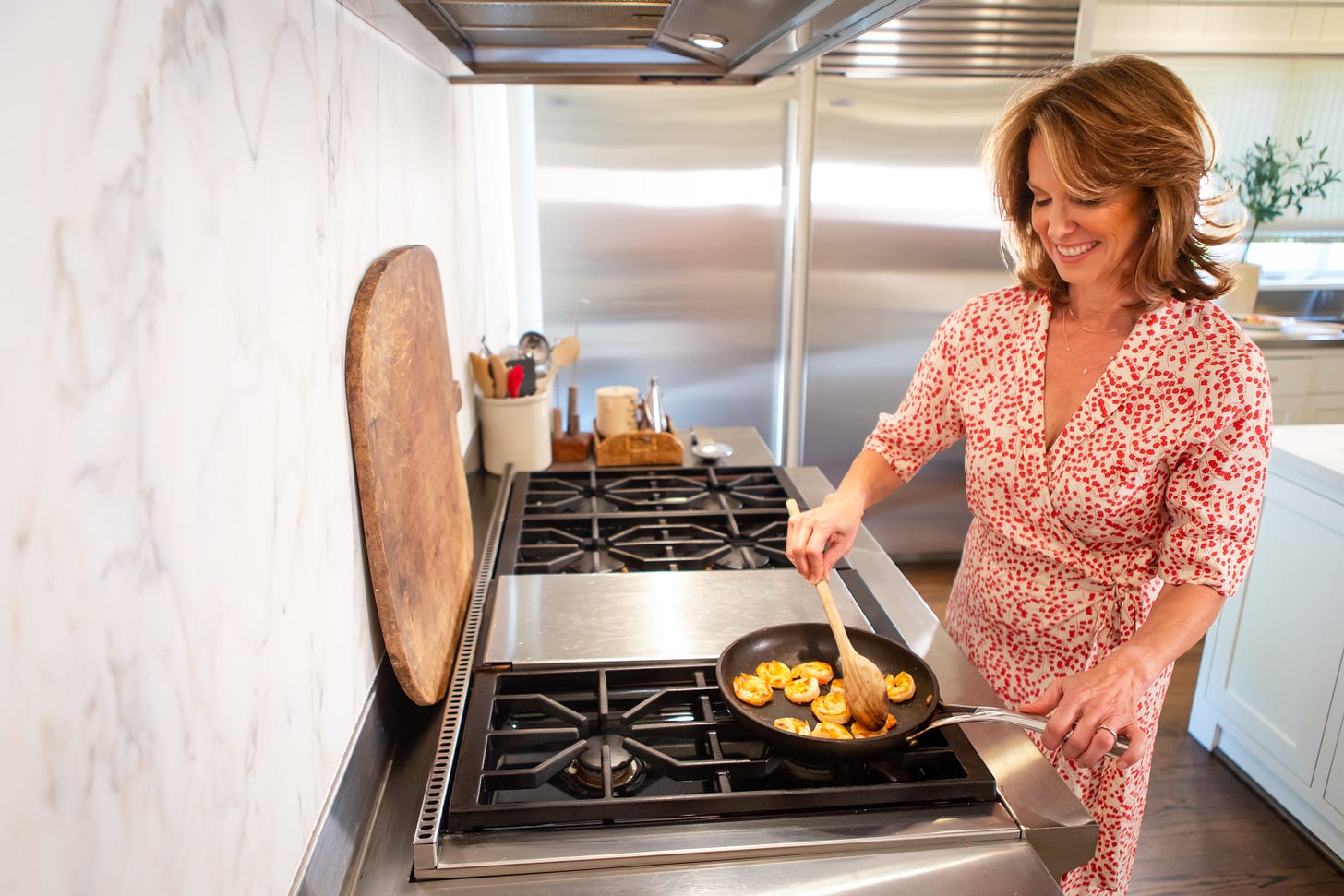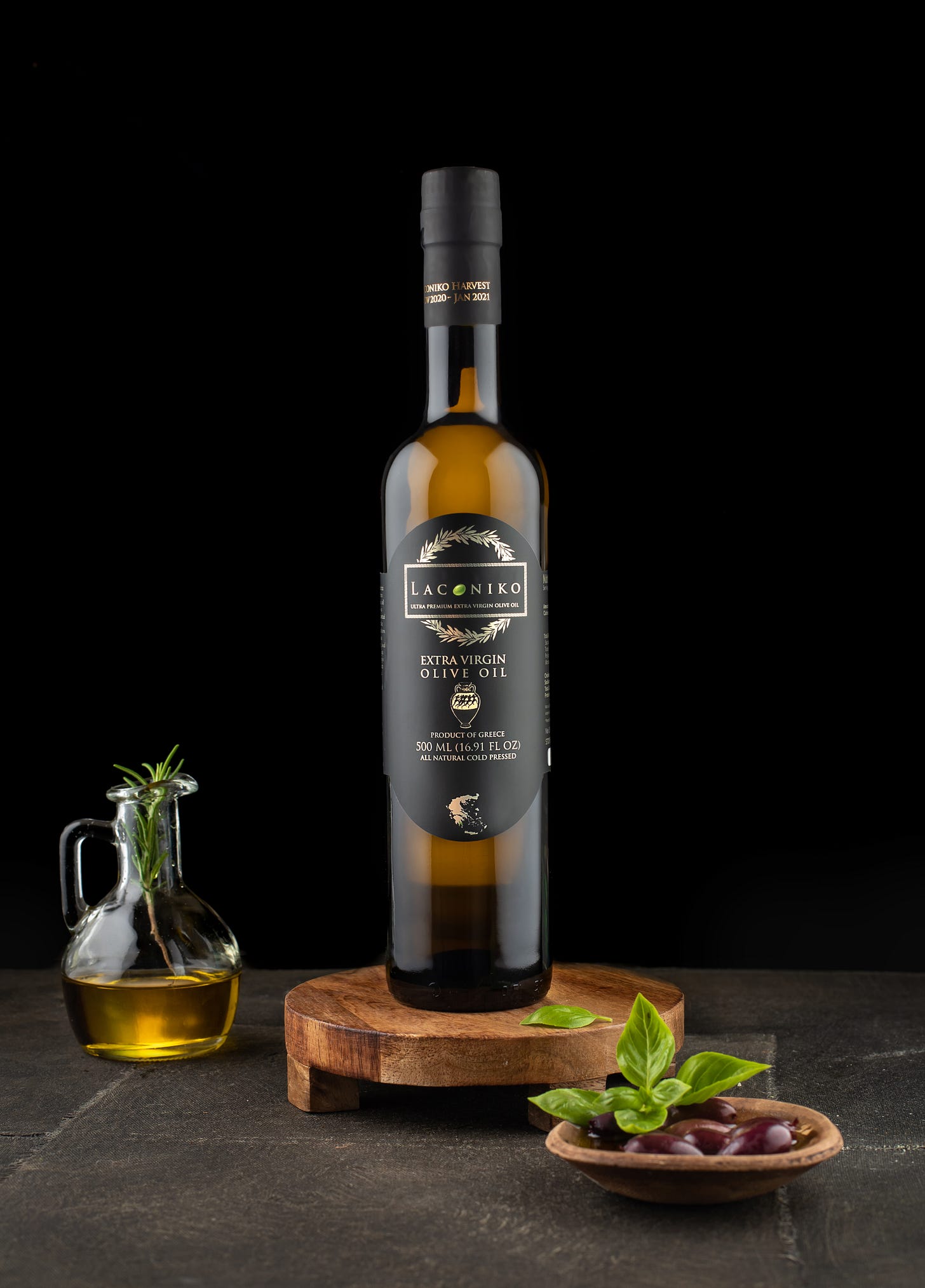Does olive oil turn toxic at high temperatures? What you really need to know about cooking with it.
I can’t tell you how many times I’ve heard this exact question. Today, we're breaking it down! Plus, don’t miss the exclusive giveaway at the end! 🎁
This newsletter is sponsored by Laconiko, producers of one of the most awarded extra virgin olive oils in the world. All opinions, as always, are our own and we only recommend products we truly love!
"Wait, you’re not supposed to cook with olive oil! Doesn’t it turn toxic or something?"
I can’t tell you how many times I’ve heard this exact question, often asked while I’m drizzling olive oil over vegetables to roast or sautéing onions for a stir-fry. It’s one of the biggest myths in the kitchen, and today, we’re setting the record straight: YES, you can cook with olive oil — and you absolutely should.
Let’s break it down — but before we dive into the cooking myths, let’s talk about why olive oil is such a powerful part of a healthy lifestyle.
The Health Benefits of Olive Oil
Olive oil is at the heart of the Mediterranean lifestyle for good reason. Regular consumption of extra virgin olive oil (EVOO) is linked to:
Heart health: Reduces LDL ("bad") cholesterol and improves HDL ("good") cholesterol.
Brain support: Rich in monounsaturated fats and polyphenols that may help protect against cognitive decline.
Anti-inflammatory effects: Polyphenols reduce markers of inflammation in the body.
Blood sugar regulation: Helps support more stable blood glucose levels.
Cancer-fighting potential: Antioxidants like hydroxytyrosol may play a role in reducing cancer risk.
These benefits are well-documented in major studies, including the PREDIMED trial, a landmark study showing that a Mediterranean diet rich in EVOO significantly lowers the risk of cardiovascular events.
Why People Think You Shouldn’t Cook with Olive Oil
This all comes down to something called the smoke point — the temperature at which an oil starts to break down and release smoke. People worry that heating olive oil past its smoke point can produce harmful compounds.
While that’s technically true of any oil, what matters more is how stable the oil is when heated, and olive oil is one of the most stable fats you can cook with. Especially high-quality EVOO.
This is because of its high antioxidant and low polyunsaturated fat content.
In fact, in a study that used several types of olive oil for deep frying, extra virgin olive oil proved particularly resistant to oxidation.
What Makes Olive Oil So Heat-Stable? Polyphenols.
High-quality EVOO, like Laconiko, is rich in polyphenols — powerful plant-based antioxidants that help protect the oil (and your body) from damage.
These compounds not only help olive oil resist oxidation at high temperatures, but they also provide anti-inflammatory, heart-protective, and potentially anti-cancer effects.
In fact, Laconiko's Koroneiki variety has been recognized for its especially high polyphenol content — 8x to 16x more than standard supermarket EVOO. That means:
More health benefits
More stability when cooking
Longer shelf life
Better flavor
Smoke Points: How Olive Oil Compares
Here are some common cooking oils and their approximate smoke points:
Extra Virgin Olive Oil: 374–405°F (190–207°C)
Refined Olive Oil: 465°F (240°C)
Canola Oil: 400°F (204°C)
Avocado Oil: 520°F (271°C)
Butter: 300–350°F (150–177°C)
Most stovetop cooking is done between 250–365°F, well within the safe range for EVOO. So yes, it's safe for sautéing, roasting, and even baking.
A 2018 study published in the journal Acta Scientific Nutritional Health found that extra virgin olive oil was the most stable cooking oil when heated compared to other common oils — meaning it maintained its nutritional integrity and produced the fewest harmful compounds.
How to Choose a Good Olive Oil
Not all olive oils are created equal. Here's what to look for:
Harvest Date: Look for the harvest date on the label, not just the expiration date. Fresher is better.
Olive Variety: Just like wine, different olive varieties have different flavor profiles and health benefits. Laconiko uses the Koroneiki variety, prized for its high polyphenol content.
Dark Bottles: Always choose EVOO in dark glass bottles to protect it from light, especially if it's on a store shelf.
Extra Virgin: Made from the first cold pressing of fresh olives, this highest-grade oil has less than 0.8% acidity, no refined oils or defects, and must pass strict taste and quality standards.
Single Source: Single estate or single varietal oils, like Laconiko, are easier to trace and trust for quality.
How Laconiko Sets the Standard
Why we love Laconiko:
All Natural, Cold Pressed, Non-GMO
Single estate, single source, single varietal
Harvested early from green unripe olives and pressed within 4 hours
Stored in climate-controlled, oxygen- and light-free tanks
Acidity level 8x lower than EVOO standards
8x - 16x the polyphenols (antioxidants)
That kind of care and craftsmanship means Laconiko isn't just another olive oil — it's a health-boosting, flavor-enhancing staple you can feel good about using every single day.
So, Can You Cook with Olive Oil?
Yes. Yes. 1000x yes.
As long as you're using a high-quality EVOO like Laconiko, you can sauté, roast, drizzle, and bake to your heart's content. Not only is it safe, it's better for your heart, body, and taste buds.
So next time someone tells you olive oil isn’t for cooking, send them this newsletter. Or better yet, invite them over and show them :).
Purposeful Next Steps
Use Extra Virgin Olive Oil – for sautéing, roasting, and even baking.
Store it Smart – Keep your oil in a cool, dark place and choose dark glass bottles to protect freshness.
Read the Label – Look for harvest dates, single-source origin, and cold-pressed processing to ensure you’re getting a quality product.
Try Laconiko – Experience the difference with this award-winning, high-polyphenol EVOO we love and use daily. Shop Laconiko here!
Enter our GIVEAWAY! Click here to enter on Instagram.
*Giveaway ends on Friday, May 9 at 11:59 p.m. CDT. The winner will be announced within a few days of the giveaway closing.
I’d love to hear from you:
📌 Have you been avoiding cooking with EVOO?
📌 What’s your favorite way to use olive oil in the kitchen?
💬 Drop a comment, and let’s keep the conversation going!






